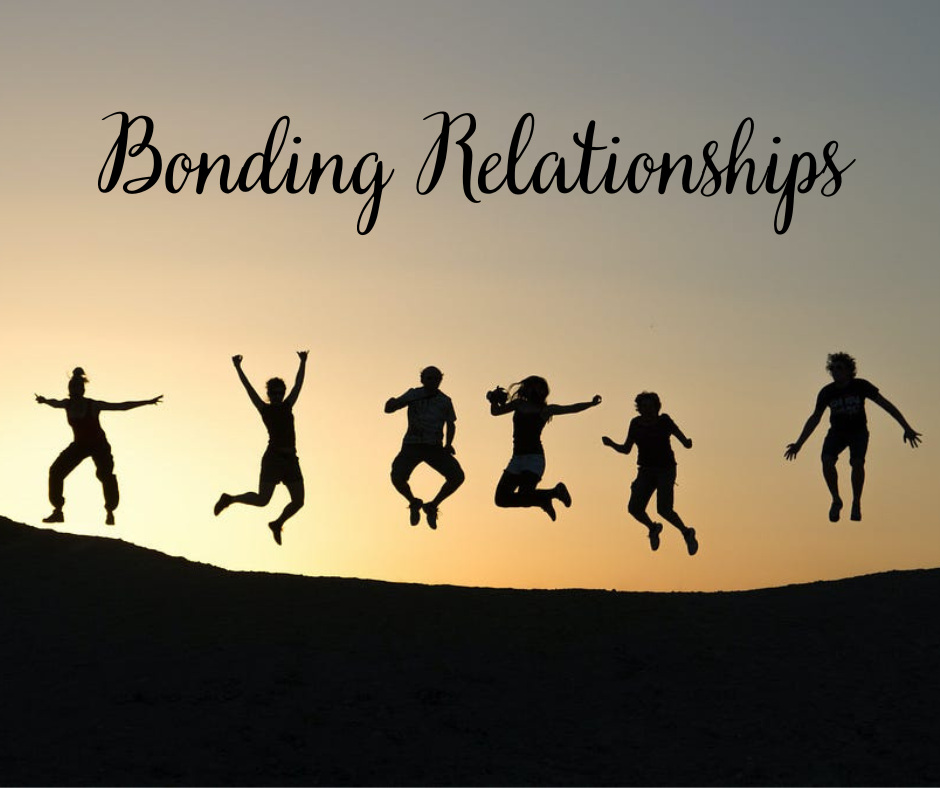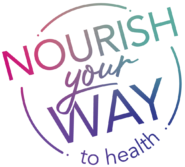
Cultivating Relationships
We are social creatures. As humans, we have a need to connect with others—a need to bond, to find common ground and feel less alone in this busy, crazy world. We have a strong yearning to love and to be loved in return.
What is a healthy relationship? A connection that makes you feel good. We need healthy relationships in our lives to fill gaps, to share success, to celebrate, to relate to another, and to possibly share our lives. Not only does a healthy relationship help avoid loneliness, it provides support and validation to you for being YOU.
Healthy relationships have been shown to increase our happiness, improve health, and reduce stress. Studies show that people with healthy relationships have more happiness and less stress. There are basic ways to make relationships healthy, even though each relationship is different. The following tips apply to all kinds of relationships: friendships, work and family relationships, and romantic partnerships.
1. Keep balance: Other people help make our lives satisfying but they cannot meet every need. Find what interests you and become involved. Healthy relationships have room for outside activities.
2. Be yourself: It’s much easier and more fun to be authentic than to pretend to be something or someone else. Healthy relationships are made of real people.
3. Keep expectations realistic. No one can be everything we might want them to be. Healthy relationships mean accepting people as they are and not trying to change them.
4. Be dependable: If you make plans with someone, follow through. If you take on a responsibility, complete it. Healthy relationships are trustworthy.
5. Communicate in healthy ways: When you’re with someone, listen with a full ear. Don’t interrupt—try to fully understand their perspective, with empathy if needed. Ask questions to show you are genuinely interested, and share information.
6. Agree to disagree: Listen first. If you disagree, try to understand the other person’s perspective. Start by responding with something like, “What I hear you saying . . .” or “I feel . . .” Recognize that not all issues are easily resolved. Try to come to common ground and find solutions. Apologize if necessary: This goes a long way.
7. Set boundaries: If you cannot establish common ground with someone, it might be best to set boundaries on how often you communicate with that person. It’s possible that breaking off the relationship entirely is the best solution.
Emotions
Positive Emotions
People who are emotionally well have fewer negative emotions and are able to bounce back from difficulties more quickly. Another sign of emotional wellness is being able to hold onto positive emotions longer and appreciate the good times. Developing a sense of meaning and purpose in life and focusing on what’s important—contributes to emotional wellness.
Having a positive outlook doesn’t mean you never feel negative emotions, such as sadness or anger, says Dr. Barbara L. Fredrickson, a psychologist and expert on emotional wellness at the University of North Carolina, Chapel Hill. “All emotions—whether positive or negative—are adaptive in the right circumstances” she confirms.
A balance of at least 3–1 (positive vs. negative emotions) is what Dr. Fredrickson suggests is ideal for a happy and healthy outlook. This scientific discovery was groundbreaking in beginning the discussions on how a positive state of mind can enhance relationships, improve health, relieve depression, and broaden the mind.
Fredrickson’s work on the study of positive emotions began in 1998. Her foundational research led to her to develop a theory on positive emotions called Broaden and Build Theory. The substance of this theory lies in the notion that positive emotions play an essential role in our survival. Positive emotions, like love, joy, and gratitude, promote new and creative actions, ideas, and social bonds. When people experience positive emotions, their minds broaden and they open up to new possibilities and ideas. At the same time, positive emotions help people build their personal well-being resources, ranging from physical to intellectual, and social resources.
Negative emotions may be as clear-cut as anger and fear, or they may be more confusing and complex, like helplessness, guilt, and jealousy. It’s important to name the feelings you’re experiencing before you attempt to get rid of them entirely. Certain emotions are linked to physical health problems. Consider the four that follow and ask yourself whether you know how to recognize them in your own life.
Negative Emotions
It may be hard to believe that negative emotions can cause lasting damage to the physical body—and you may not be aware of your level of stress or your emotional triggers. Short-term spurts of anger or anxiety are beneficial to our survival as a species, as they keep us alert when there is danger or aid us in confronting an attacker. Being in a perpetual state of negative emotions is not good for your health.
Stress
Short-term periods of stress may enable you to work harder, adapt to a life challenge, and focus when you’re doing something important. Long-term stress, though, can weaken your immune system, give you an upset stomach, and contribute to tight muscles. It can also cause headaches, chronic insomnia, and high blood pressure. It’s crucial to take steps to decrease your level of stress so that it does not leave you with lasting and irreversible physical health problems. There is no blood test you can take to determine how stressed you are.
Anxiety
Physical symptoms of anxiety such as sweaty palms and shaking hands are well-documented. If you have panic attacks or simply experience a lot of generalized anxiety every day, you may additionally notice tight muscles, a weak body, stomach problems, and a fast heartbeat. Untreated anxiety can cause several confusing and scary physical symptoms such as chest pain, shallow breathing, and muscle twitches.
Forgiveness
Forgiveness means fully accepting that a negative event has occurred and relinquishing our negative feelings surrounding the circumstance. Research shows that forgiveness helps us experience better mental, emotional and physical health. Forgiveness doesn’t always mean you need to forgive someone or a group in person, but letting that event go and totally forgiving, in your mind is key. And it can be learned, as demonstrated by the Stanford Forgiveness Project, which trained 260 adults in forgiveness in a six-week course. This was the result:
- 70% reported a decrease in their feelings of hurt
- 13% experienced reduced anger
- 27% experienced fewer physical complaints like pain, gastrointestinal upset, dizziness, etc.)
The practice of forgiveness has also been linked to better immune function and a longer lifespan. Other studies have shown that forgiveness has more than just a metaphorical effect on the heart; it can actually lower our blood pressure and improve cardiovascular health as well.
In conclusion, we need healthy relationships to help us have positive emotions. Stress of a job or even stress of a relationship needs to be monitored so that your stress doesn’t cause illness. Keep tabs on your daily emotions and make sure that you keep more of these on the positive side. Your health depends on it.
Thanks for reading and feel free to leave a comment.
Adrienne
xo
